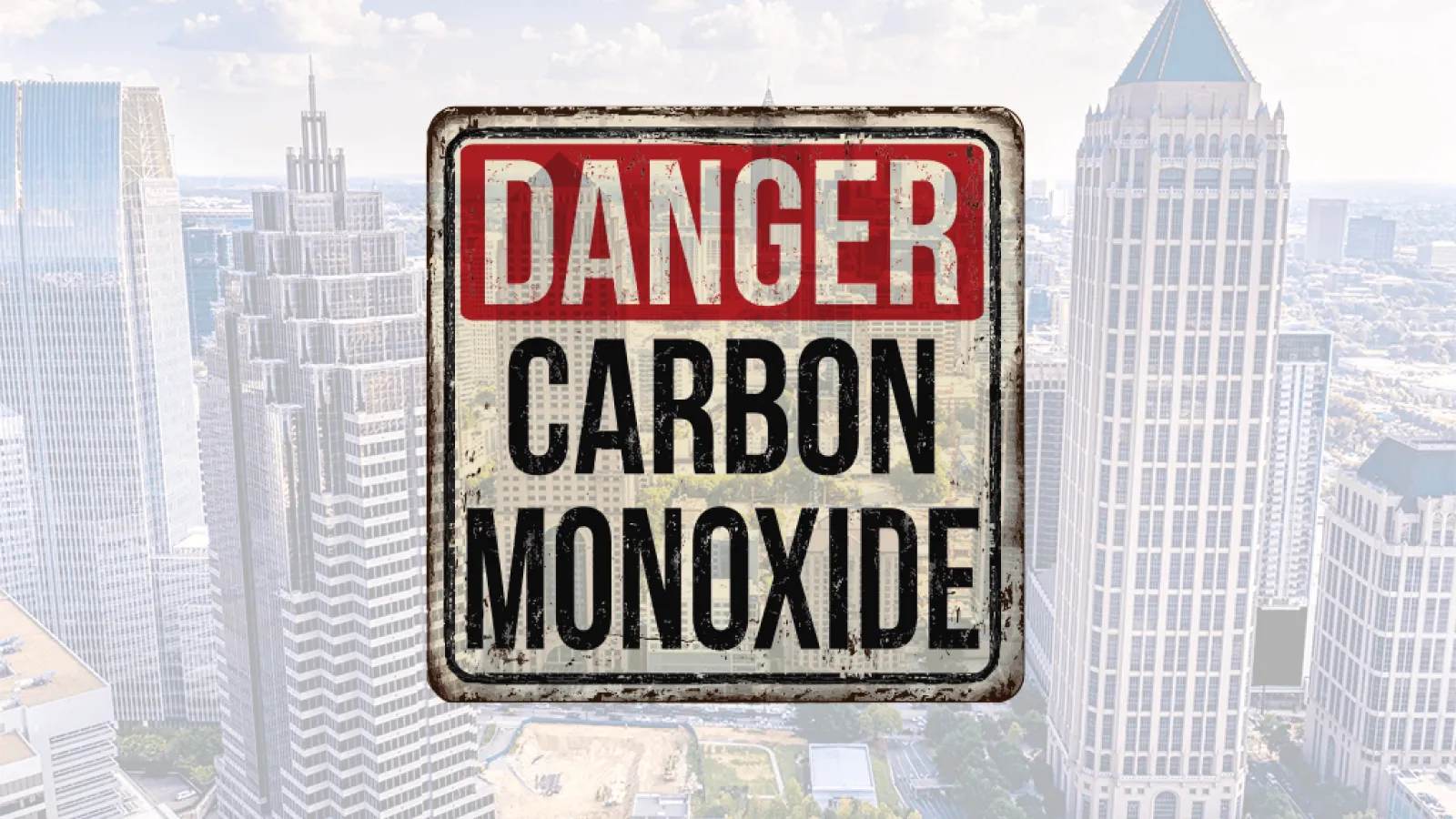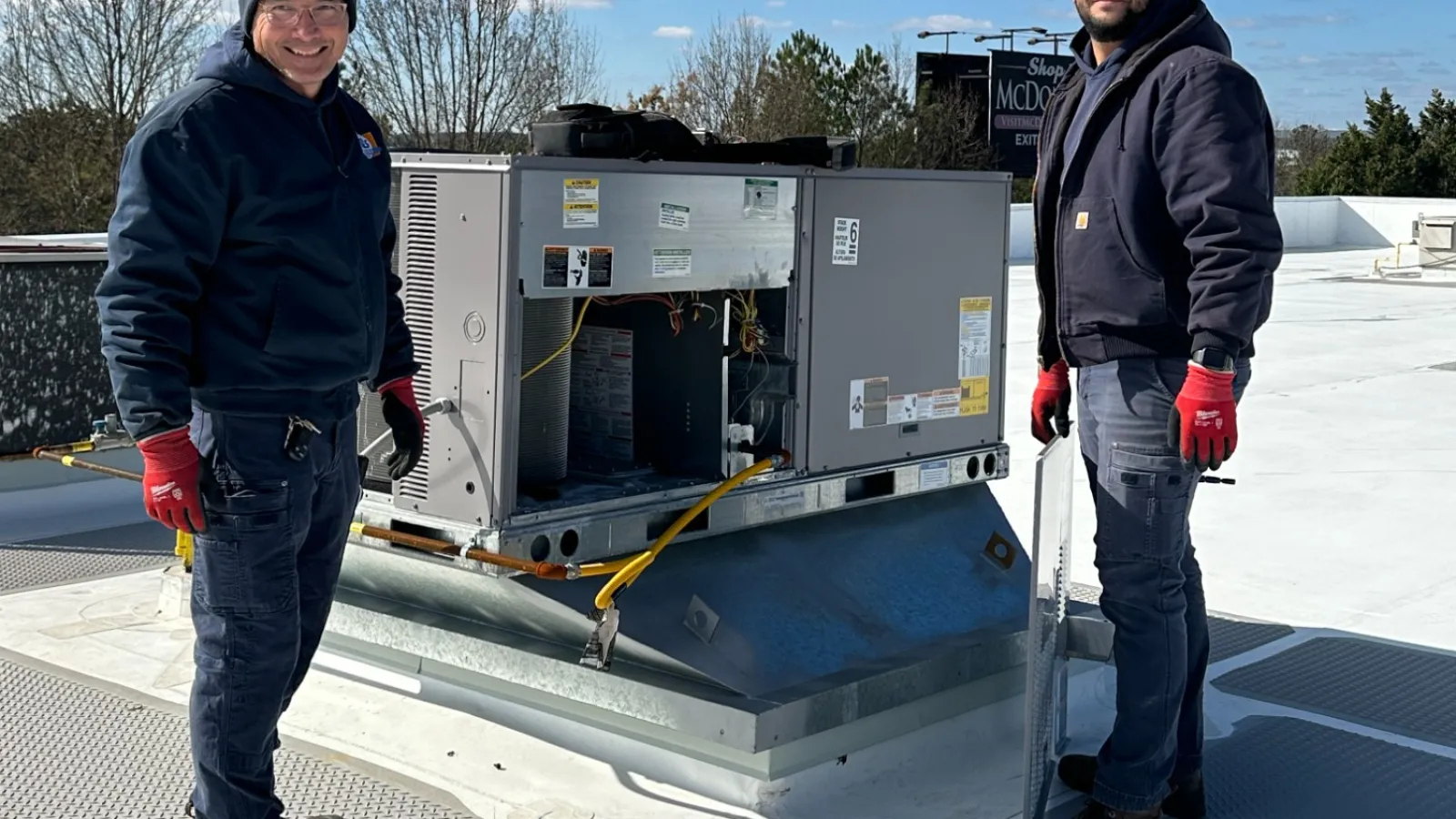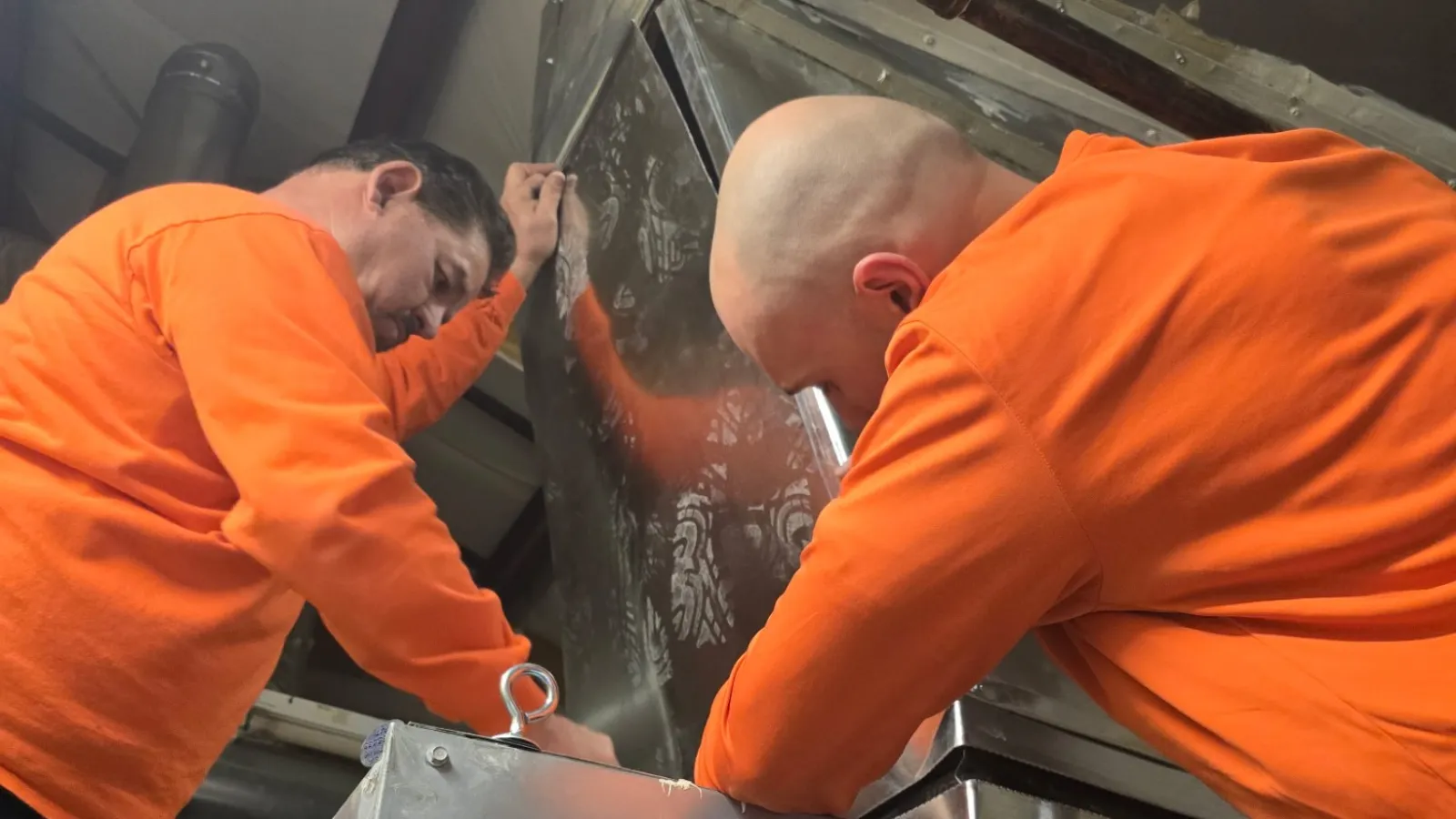During the winter months, Atlanta area business owners must take carbon monoxide prevention measures to safeguard employees and customers from exposure. Combustion occurs as part of many business operations, from heating a facility to equipment used in production, creating carbon monoxide and the potential for carbon monoxide poisoning if proper precautions are not used.
The commercial HVAC professionals of Estes Commercial review carbon monoxide safeguard measures for your Atlanta area business. Reduce the risks in your workplace when you contact us today to schedule service.
How Carbon Monoxide Exposure Occurs in the Workplace
Carbon monoxide is produced as a byproduct of combustion, that takes place when fuel is burned to power equipment. As carbon monoxide is produced, it must be properly vented out of the space to prevent buildup, which raises its volume to levels dangerous for human exposure.
Carbon monoxide poisoning is responsible for an average of 22 occupational fatalities each year. Winter months can be especially dangerous – with windows and doors tightly shut to keep out the cold, carbon monoxide is also kept in.
Carbon Monoxide Prevention for Your Facility
Carbon monoxide prevention is a multi-faceted endeavor for business owners, involving installation of proper safety systems and alarms, employee education for safe equipment use and maintenance for fuel-burning equipment.
Certain HVAC services and solutions reduce carbon monoxide poisoning risks in the workplace. The following measures are critical for carbon monoxide prevention in your Atlanta business’s facility:
- Ventilation system installation
- HVAC system maintenance
- Carbon monoxide detector installation
Ventilation Systems
In areas of the facility where fuel-burning equipment and tools are in use, proper ventilation is of the utmost importance. Without an adequate ventilation system, carbon monoxide is not vented away from the space, so it is able to build up and workers are exposed.
Fuel-powered tools should not be used in confined areas or areas without proper ventilation. Educate your workforce regarding the safe use of fuel-powered equipment and proper operation of ventilation systems for everyone’s safety. Regularly inspect and test ventilation systems to ensure proper functioning.
HVAC System Maintenance
When a commercial heating system is in good condition, the carbon monoxide produced through combustion is wholly contained by the system and safely vented out and away from the building. However, system issues can occur that allow carbon monoxide to leak, which creates the possibility of exposure to occupants.
A cracked heat exchanger as well as damaged or blocked flue vent on your commercial heating unit are two serious issues that cause carbon monoxide to escape the system and enter the indoor environment. When the problem persists, carbon monoxide volume has the potential to rise to unsafe levels of exposure, leading to serious health effects and even fatality.
Regular maintenance for your commercial heating system works to prevent carbon monoxide. Inspection and service performed on an annual basis identifies malfunctions and allows for repair or component replacement for carbon monoxide control and prevention. Work with your commercial HVAC contractor to establish a maintenance agreement to ensure your systems receive the necessary inspection and service they need for safe operation.
Carbon Monoxide Detectors
Carbon monoxide detectors are the only way to alert building occupants to the presence of carbon monoxide indoors. Otherwise, this colorless, odorless gas is able to build up and exposure persists undetected.
Install carbon monoxide detectors throughout your facility to ensure all building occupants are alerted when unsafe levels are detected. Units linked through building automation systems allow all units to sound when the presence of carbon monoxide is detected in a specific area of the facility.
Additional units should be installed in appropriate locations in areas where fuel-burning appliances are used. Your HVAC contractor is able to install carbon monoxide alarms in locations for accurate monitoring and integrate them with your building automation system for connectivity as well as remote monitoring.
Estes Commercial – Your Business’s Carbon Monoxide Prevention Partner
The Atlanta HVAC professionals of Estes Commercial are dedicated to helping your business establish and maintain a safe working environment for your employees and a comfortable atmosphere for visitors. Partner with us for carbon monoxide prevention measures across your facility – contact us today to learn more about the solutions and services we offer.



